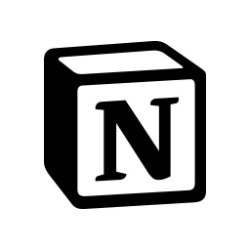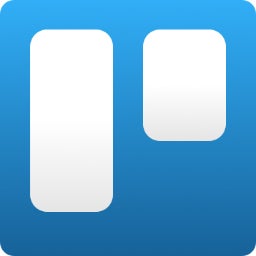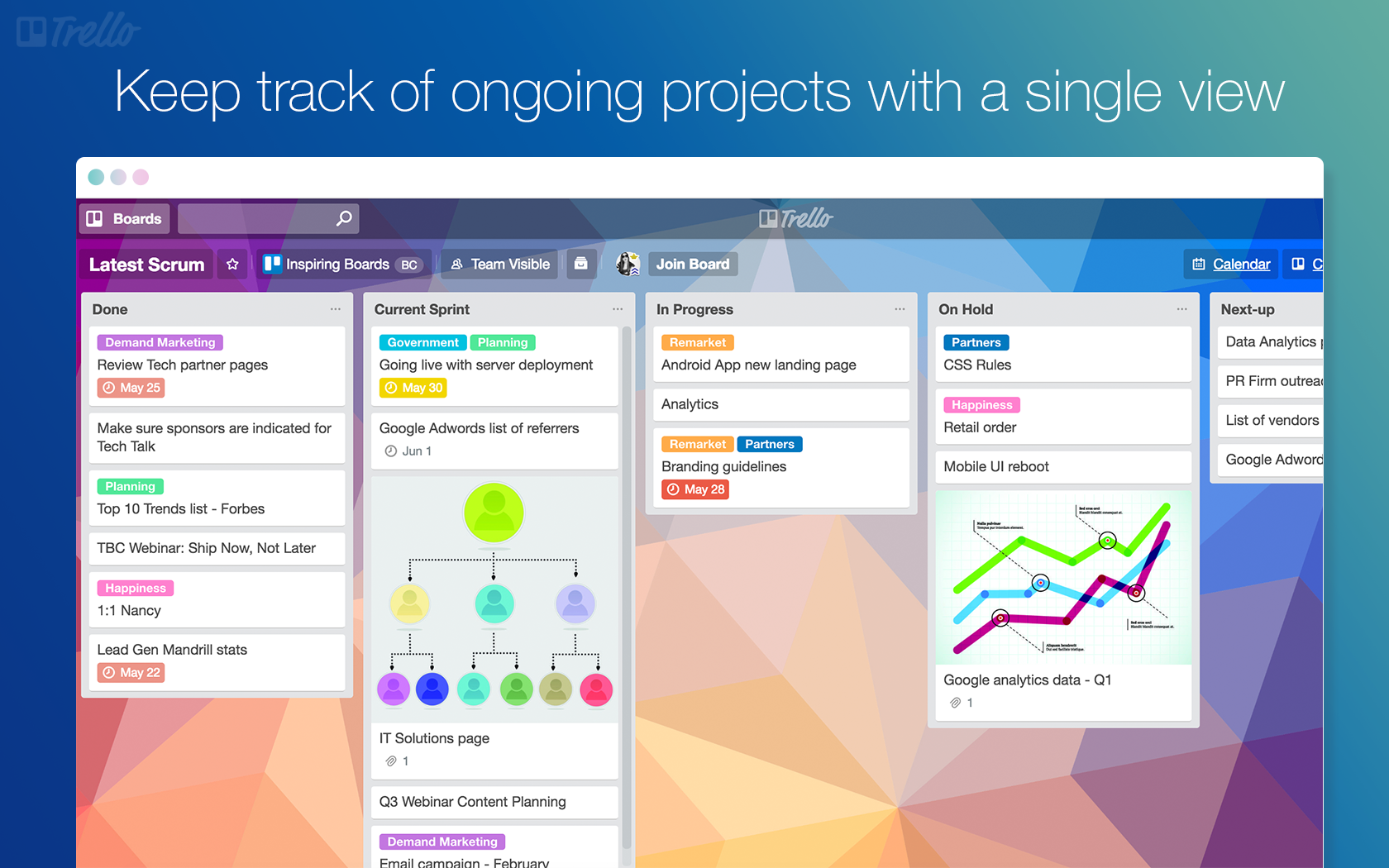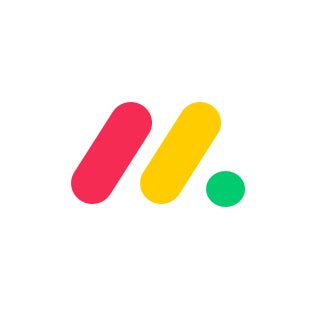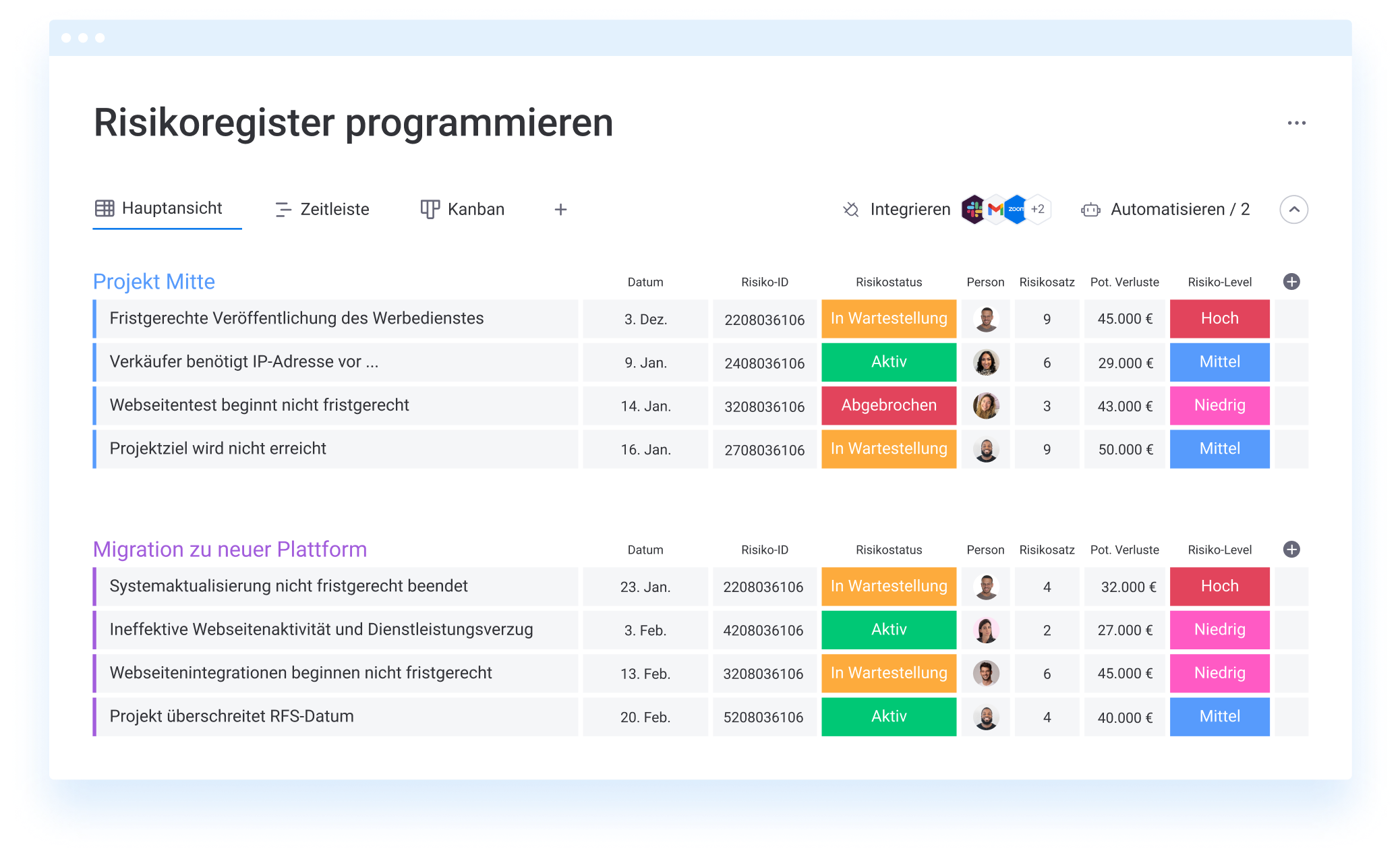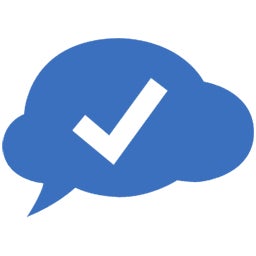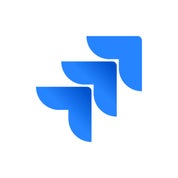The 6 best tools for your task management
Veronique Bartsch12/18/2025
In this article, we will introduce you to the six best task management tools and show you how to work efficiently with them
Table of contents
- What is a task management tool and what are the most important functions?
- The advantages and disadvantages of task management tools
- What does a task management tool cost me?
- Our top 7 task management tools
There are always a lot of tasks in a company. It's really helpful if you can manage a large proportion of these tasks using reliable tools. This means less time is needed and everything is still done efficiently. Are you struggling to find the right task management tool for your needs? We at OMR Reviews would like to introduce you to our top 6 tools in this article to make your choice easier.
First, you'll find out what a task management tool actually is and what the most important functions are. We'll tell you what you need to look out for when choosing a tool and what the advantages and disadvantages of task management tools are. We then take a brief look at the prices and give you our top 6 task management tools so that you are as well equipped as possible.
We take a detailed look at these tools:
You will receive a list of the most important functions and a cost overview for each tool. This way you can be sure that the tool fits your requirements and budget exactly.
What is a task management tool and what are the most important functions?
Task management is the management of tasks. Task management encompasses all parts of tasks: In addition to planning and administration, it also involves the monitoring and implementation of tasks. Put simply, a task management tool should help you to complete all tasks in your team and company as efficiently and easily as possible. The most important functions of task management software include
- Communication within the team, be it through a notification, comment or chat function.
- Task distribution: many tools offer the option of assigning tasks and tracking progress.
- Lists/dashboards help to provide a good overview, regardless of whether appointments or tasks are involved. There is often also the option of ticking off completed tasks.
Task management tools are therefore primarily there to give you an overview and make it easier to assign and complete tasks within the team. Order is half the battle - and this also applies to task management. If nobody knows what they have to do, who the contact person is or what the deadlines are, it's easy to overlook something.
Recommended project management software
On our comparison platform OMR Reviews you can find more recommended Project management-Software. We present over 300 tools that are particularly suitable for small and medium-sized companies, start-ups and large corporations and offer support in all areas of project management. Take the opportunity to compare the different software and rely on authentic and verified user reviews:
- ClickUp(Sign Up for Free)
- Zoho (Directly to the provider)
- wrike (Directly to the provider)
- Teamwork (Directly to the provider)
- Smartsheet (Directly to the provider)
- Quickbase (Directly to the provider)
- monday.com (Directly to the provider)
- Oracle NetSuite (Directly to the provider)
- Asana
- smenso
- Stackfield
- awork
- PROAD
- Überblick
- poool
- ZEP
- work4all
- orgaMAX
- MOCO
The advantages and disadvantages of task management tools
Efficiency is definitely one of the biggest advantages. Many tools are easy to use and therefore easy to understand for any "level of knowledge". As a result, employees do not have to undergo a lengthy training period before they can start managing tasks straight away. Once everything is in order, tasks can be completed quickly and efficiently. Time-consuming queries or inquiries due to minor details can be avoided altogether. Everything is in one place.
Another big plus point: remote work! Especially in the current times of crisis, on-site presence is always somewhat difficult. Many tasks require several colleagues to work together and it is often difficult to get them all around one table at the moment. Task management tools enable a team to work together regardless of location.
Organized task management also enables your company to process tasks reliably and on time. This allows you to work as efficiently as possible and save time and money - and stress. And if you notice that something is not going according to plan, you can intervene at any time and optimize your workflows.
One disadvantage is certainly the large selection of different task management tools. How can you find the right tool without any prior knowledge? In the end, you end up with a tool that may not meet your requirements. So it takes a certain amount of effort to find a tool that fits the team and the tasks. The preparatory work also continues when setting up the tool: data has to be entered and colleagues have to be trained. But it works all the more efficiently when the framework conditions are in place.
What does a task management tool cost me?
Basically, you can say that task management tools are adaptable to the respective budget. There are free trial phases, inexpensive or even free tools that still guarantee reliable work and of course the non-plus-ultra, as is so often the case, everything is open at the top. In most cases, the prices for the tools increase with the size of the company; the larger the team, the more that needs to be managed. The larger the tool package, the higher the price.
Many tools, such as the Asana and Trello tools mentioned later, can be used free of charge, especially for beginners. Especially if it's just a matter of getting an overview of tasks with a handful of people, you can usually get away with it for free. If you have higher demands in terms of collaboration or want to bring structure into your task management, there is usually no way around a paid package.
Our top 7 task management tools
1. Asana
Asana is probably one of the most widely used and best-known task management tools. Asana has also won over the OMR Reviews community: In May 2023, the tool is (once again) top rated and even leader in its field. Asana offers its users the ability to manage tasks and communicate in a team from any location. Other functions include:
- Create & assign tasks: What is due in the near future, who is taking on a task and who are complementary contacts? Employees also have the option of ticking off completed tasks or reacting to tasks.
- To-do lists: The tasks can be displayed either as a list or as a board for a convenient view. Everyone in the team can see directly what needs to be completed by when and who is involved.
- Dashboards for a better overview: Like the tasks, you can also display the other administration as a dashboard. Projects to be managed or progress/results can thus be easily displayed.
- Project plans & calendar views: Appointments and deadlines can also be managed with Asana, either matching the project or task or in the practical calendar view.
Asana is free of charge for teams of up to 15 members, after which Asana package prices start at €10.99 per month.
The most popular alternatives to Asana are Trello and Monday.com. Also a good alternative: MeisterTask.
2. Notion
Notion (Directly to the Notion website) is often used as a note-taking program, but it can do so much more. The self-proclaimed "all-in-one workspace" offers numerous possibilities for organization. Some of them are:
- Everything at a glance: You can connect your teams and projects and add files to them.
- Wikis: Everyone can always keep an overview because all the information about a task and a project is stored.
- Drag & drop: Create the workflow that works for you - whether it's a dashboard or a website.
Notion says that it is useful for every type of company. Notion is also free for private use. Notion prices for team versions start from $8 per month per user.
The best alternatives to Notion are already covered in this article. All others that could be considered focus more on project management.
With the term project management, we have also created a direct transition to the final knowledge in this article. Tasks and projects often go hand in hand, which is why good organization is so important. There are, of course, a number of tools on the market that are particularly suitable for project management. However, the project management method is also decisive when choosing a suitable tool.
3. Trello
Alongside Asana and Notion, Trello is probably one of the most widely used task management tools. This tool impresses above all with its simplicity. There are no complicated applications or areas, which makes Trello particularly attractive for "non-specialist" companies that may not yet have much experience in using task tools. These are some of Trello's features:
- Assigning/scheduling/prioritizing tasks: Who is responsible for a task? When does it have to be done? Which task is currently the most important? You can store this information in Trello so that it is clearly visible to the whole team.
- Cross-project: Are you working with different teams on different tasks? With Trello, you can set up an area for each team without employees getting in each other's way.
- Problem tracking and recording: Is something not going well in the team? Then you can intervene at an early stage and optimize processes.
Trello offers you a free version, which makes it attractive to use, especially for beginners or small teams. The Trello package prices start at $10 per month. Because the tool is so simple and the free version has no significant limitations, this tool is even suitable for individuals or private projects.
Asana is also a free alternative otherwise you can find more alternatives to Trello on OMR Reviews.
4. monday.com
monday.com effectively helps you to optimize processes and workflows. In addition to project and task management, you can also use monday.com for marketing and sales. The tool also allows you to integrate other tools that you already use. Further functions of monday.com are:
- Dashboards for reporting & analytics: You can display your data clearly and don't lose the overview when evaluating your results.
- Templates & filters: If you're just starting out, you'll quickly feel overwhelmed if you have to do everything on your own. monday.com offers you numerous templates so that you can get started easily.
Monday also starts with free accounts (Register now for free). For teams, monday.com's package prices start at a manageable €8 per month.
Alternatives to monday.com include Asana and Trello, both of which also have a free version. If you have Microsoft 365 anyway, Microsoft Project is another good alternative for you.
5. Stackfield
Stackfield is an all-in-one collaboration tool that offers you everything in one place. From projects and team chats to video conferences and your documents, you have all the functions your team needs to work productively. The most important ones include:
- Communication across all channels: Using team chat, thread-based discussions, audio and video conferencing with screen sharing, your team can stay in touch across all channels and regularly exchange information in real time.
- Project management & collaborative teamwork: You can manage projects with the Kanban board. In addition, the schedule, project portfolios, reports, workflows and work time tracking provide you with a fully structured and visualized overview of all ongoing projects.
- Whiteboards & visual feedback: Visualize your plans, ideas and processes with the help of flowchats and mood boards and use the topic-related feedback function.
Whether you have a rather small team of five users or a large one with over 100 employees - everyone will find the right plan here. You can choose between the Business, Premium and Enterprise packages, with Stackfield prices starting at €11 per person per month.
In addition to Asana, Trello and monday work management, which have already been mentioned in this article, you can use awork as an alternative to Stackfield.
6. Jira
The Jira tool offers you support for all kinds of task management applications - from requirements management to agile software development. The tool was developed by Atlassian. Jira offers you the following functions, among others:
- Task management & reporting: you can not only assign, plan and track tasks, but also create corresponding reports.
- Time tracking & monitoring: Keep a complete overview of your workflows. This also lets you know when you need to intervene and optimize.
- Bug reporting: Valuable for finding out from the outside if something is wrong. This allows you to offer the best service at all times.
Do you have a rather small team with up to 10 users? Then Jira is actually free for you. All others will find what they are looking for in the paid packages. These start from $7 per month/user. Of course, Jira is also in "competition" with the tools mentioned so far.
Alternatives to Jira include Stackfield or monday.com. While the latter focuses on work processes and automation, Stackfield, unlike the tools mentioned so far, even offers you the option of holding video conferences.
 Asana
Asana Notion
Notion Trello
Trello monday work management
monday work management Stackfield
Stackfield Jira
Jira

